Six faculty named 2011 Sloan Fellows
By Anne Ju
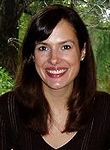
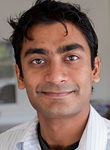
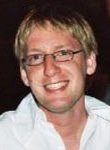
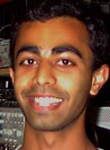
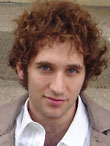

The Alfred P. Sloan Foundation has awarded six Cornell faculty members Sloan Research Fellowhips for 2011. The awards recognize early-career scientists and scholars for their achievements and their potential to contribute substantially to their fields.
Drawn from 54 colleges and universities in the United States and Canada, 118 fellows were awarded $50,000 each in such disciplines as chemistry, computer science, economics, mathematics, evolutionary and computational molecular biology, neuroscience and physics.
Serena DeBeer, assistant professor of chemistry and chemical biology, is developing X-ray-based spectroscopies as probes of electronic structures in biological and chemical catalysis. She studies enzyme systems and small molecule model complexes, which aim to mimic enzyme activity. In particular, her group is interested in developing new spectroscopic methods to enable characterization of intermediates in reaction cycles.
Alon Keinan, assistant professor of biological statistics and computational biology, studies how human genetic variation has arisen from evolutionary history. His research focuses on elucidating the history of modern human populations and on developing computational methods for searching for genes important in human biology. With a background in computer science and statistics, Keinan develops theoretical tools and applies them to genomic data sets, bridging theoretical population genetics and empirical studies.
Rafael Pass, assistant professor of computer science, is a cryptographer who studies how untrusting agents can collaborate toward common goals. He uses mathematically rigorous techniques to design and analyze cryptographic protocols for real-world settings, like the Internet, where millions of executions take place at the same time. His work also focuses on developing computational models of knowledge and rationality, and identifying the complexity-theoretic assumptions required for secure collaborations.
Ashutosh Saxena, assistant professor of computer science, is developing algorithms that enable assistive robots to perform everyday chores in indoor environments, such as cooking a simple meal, operating household appliances or cleaning a cluttered house. Saxena says a key challenge in robotics is the ability to perceive new environments. Most current work uses a piecemeal approach where perception and decision making are entirely disjointed. He believes a unified approach using machine learning will be more effective.
Mukund Vengalattore, assistant professor of physics, has established an experimental program studying ultracold atomic gases. These gases, cooled to a fraction of a degree above absolute zero, are ideal systems for studying various correlated and exotic forms of quantum matter. His group is studying "spinor" atomic gases to explore such novel phenomena as magnetic supersolids and low-dimensional aspects of quantum magnetism. In addition, he is also using ultracold quantum gases for applications in precision measurement, including magnetic microscopy of electronic materials and tests of quantum mechanics at macroscopic length scales.
Hakim Weatherspoon, assistant professor of computer science, has research interests in various aspects of fault tolerance, reliability, security and performance of such large Internet-scale systems as cloud computing and distributed systems. In addition to the Sloan fellowship, he is also a recipient of the IBM Faculty Award, the NetApp Faculty Fellowship, and the Future Internet Architecture award from the National Science Foundation.
More information: http://www.sloan.org/fellowships/page21.
Media Contact
Get Cornell news delivered right to your inbox.
Subscribe